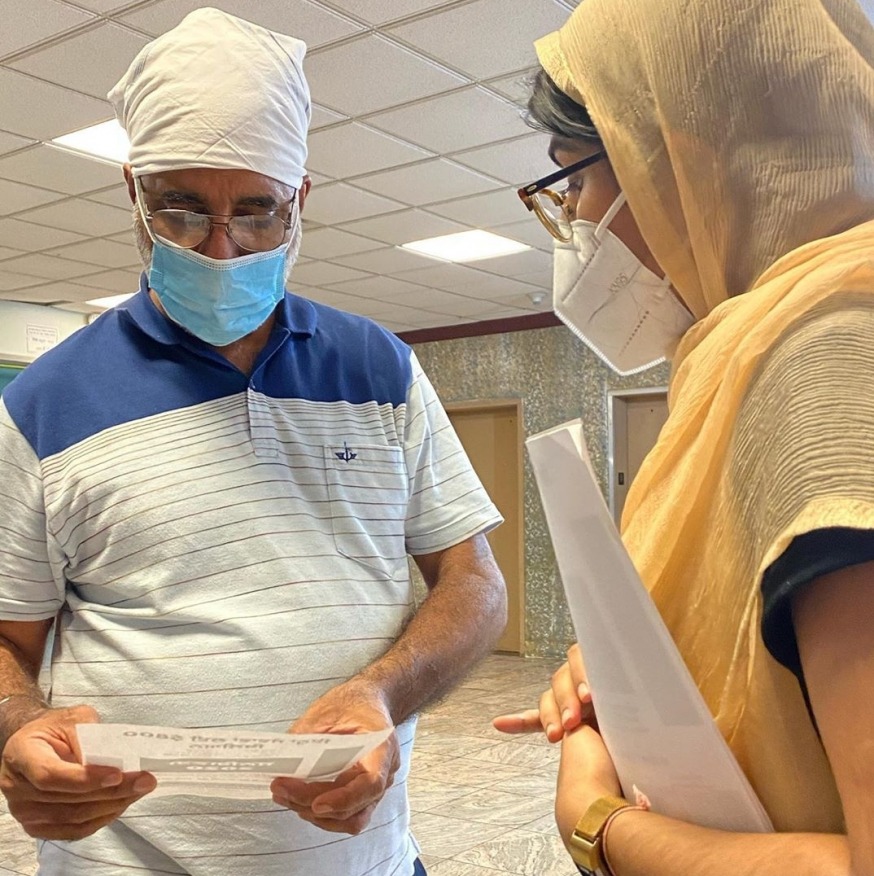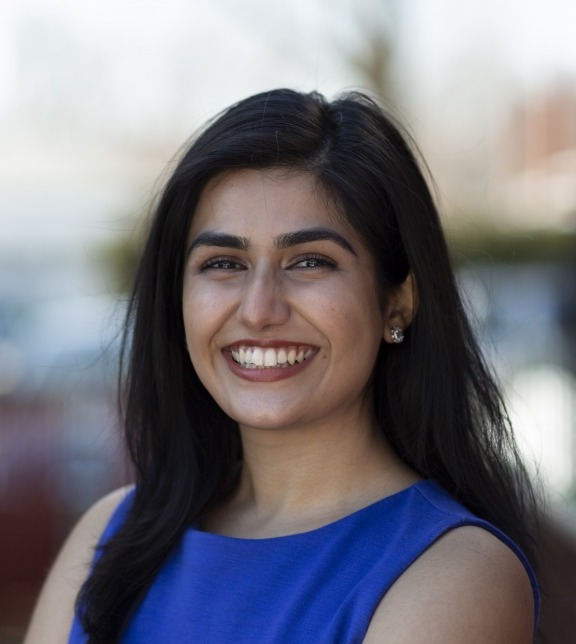
City Council Candidate Jaslin Kaur doing Census outreach with an elder at a gurdwara. (Photo provided by Jaslin Kaur)
May 3, 2021 Op-Ed By: Jaslin Kaur
The strength of our city should be judged by the support we provide seniors.
It may seem odd that I, the youngest person in the District 23 City Council race, place so much emphasis on the needs of older New Yorkers, but it makes sense if you know about one of the most rewarding experiences of my life: taking care of my grandmother in her old age. Even though I was struggling myself—living on food stamps and attending community college—she needed me, and I was there for her.
There are millions of older New Yorkers—and caregivers—in the five boroughs. My City Council district has a disproportionate part of that total: 16 percent of our population is over 65 years of age, 33 percent more than the city average. We are what researchers refer to as a NORC — Naturally Occurring Retirement Community.
Many seniors live here, but the area was not designed to support them. Certainly, not everyone 65 or older requires special services, but many do, and many will eventually require them as they get older.

City Council Candidate for District 23 Jaslin Kaur (Photo: https://jaslinkaur.nyc/)
I know what it means to do the hard work of caregiving, and I also know that our city can do a much better job of supporting those who need care and those who give care by adopting the four-prong approach in my Compassionate Care at Every Stage of Life policy program.
The first prong is ensuring that people can safely age in place, in the homes they have lived in for years. Property taxes for primary residences need to be fair and reasonable.
For those who lease their home, they should be automatically enrolled in the Senior Citizen Rent Increase Exemption program. Currently, too many people are missing out on this and similar benefits because they don’t know about them or because of onerous annual paperwork requirements.
We also need to expand tenant protections like Right to Counsel and Stabilizing NYC. Seniors are at a much higher risk of housing discrimination. And whether people own or lease, we should establish public funding for home improvements—like grab bars, handrails, adequate heating and cooling, and roof repair—that can keep people in their homes.
Second, for those who wish or need to use senior centers, we should make sure the spaces are culturally competent (like India Home or Nan Shan Senior Center in Queens) and fully funded.
The city’s Department for the Aging, which supports senior centers and other programs for older New Yorkers, receives a tiny sliver (less than 1 percent) of the total budget. All senior centers should be lively and exciting places, with interactive arts programming developed with local arts organizations, and have multilingual staff who can provide a range of needed services.
The COVID-19 pandemic revealed a chronic underfunding in equitable community healthcare, and the third important part of the plan to support older New Yorkers is to invest in our healthcare system. We must fully support NYC Health + Hospitals and community mental health facilities. We should define public health broadly and make sure, for example, that we expand emergency food programs and that we redesign and improve Access-A-Ride.
Lastly, we need to support the caregivers, those essential workers who deliver the care. For too long, caregivers and domestic workers have been relegated to second-tier status, leaving them overworked, underpaid, and disrespected. The key to supporting workers is to make sure they have strong unions representing them, and I will fight for the right of workers to organize and to work in dignified conditions for dignified pay. I also support a Domestic Worker Bill of Rights, including health and pension benefits for domestic workers like home health aides and others.
When the pandemic is over, we have to make sure that we do not just return to a normal, but that we build a “better normal,” for older New Yorkers who need care and services, and for those charged with providing that care.
Jaslin Kaur is a candidate for New York City Council in District 23 in Queens. The district covers Bayside Hills, Bellerose, Douglaston, Floral Park, Fresh Meadows, Glen Oaks, Hollis, Hollis Hills, Holliswood, Little Neck, New Hyde Park, Oakland Gardens and Queens Village.
